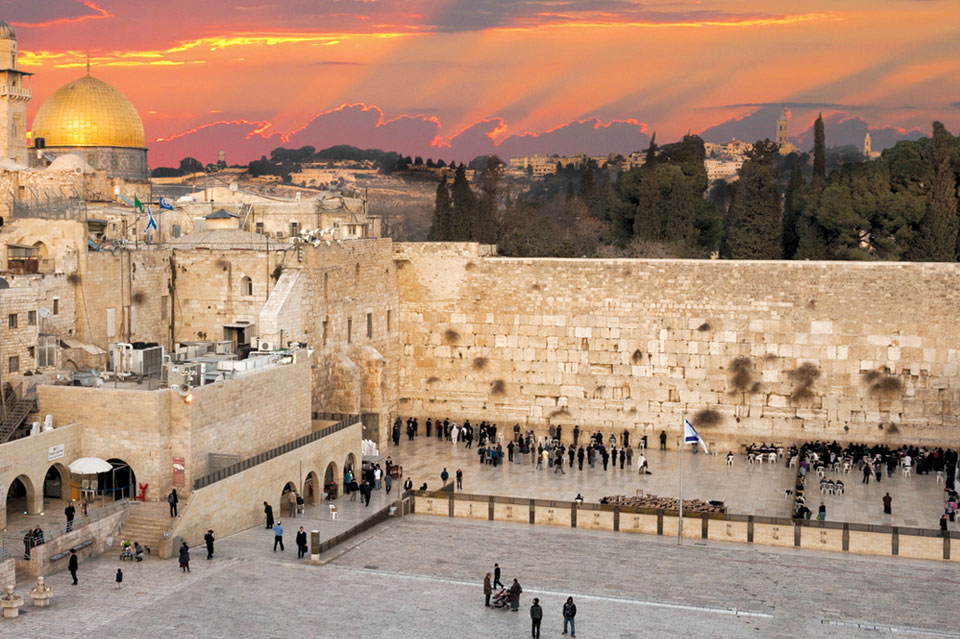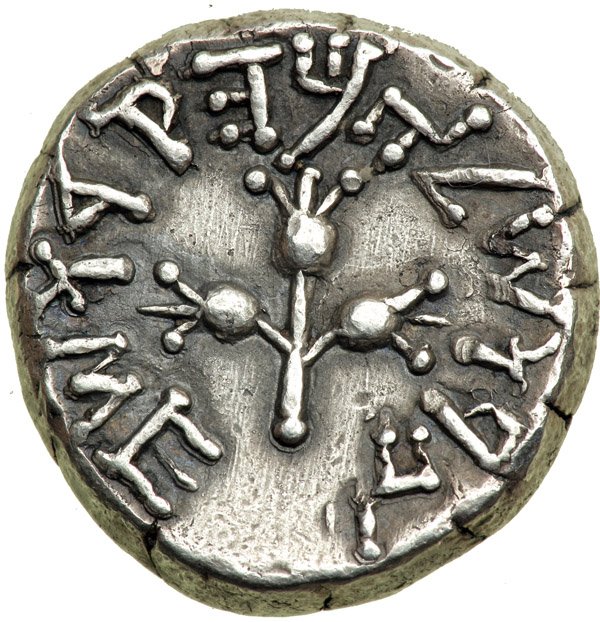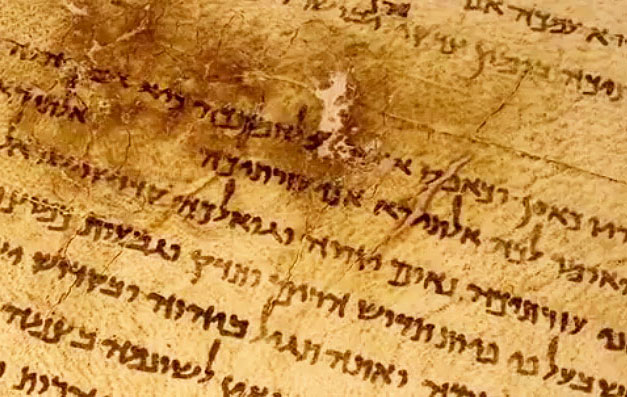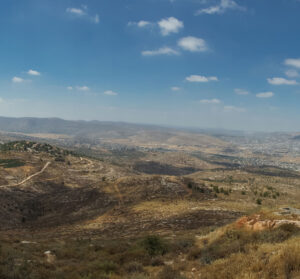
Countering BDS
BOOKLET SERIES COUNTERING ANTI-ISRAEL BOYCOTTS ON CAMPUS BDS Thinly Veiled Racism Share on facebook Share on twitter Share on linkedin Share on whatsapp Share on
THE JEWISH CONNECTION TO ISRAEL

José Martínez Cobo, U.N. Special Rapporteur on the Rights of Indigenous Peoples, created a working definition for the international community:
“Indigenous communities, peoples and nations are those which, having a historical continuity with pre-invasion and pre-colonial societies that developed on their territories, consider themselves distinct… [They] are determined to preserve, develop and transmit to future generations their ancestral territories, and their ethnic identity, as the basis of their continued existence as peoples…
This historical continuity may consist of the continuation, for an extended period reaching into the present of one or more of the following factors:
■ Occupation of ancestral lands, or at least of part of them
■ Common ancestry with the original occupants of these lands
■ Culture in general, or in specific manifestations (such as religion, living under a tribal system, membership of an indigenous community, dress, means of livelihood, lifestyle, etc.)
■ Language (whether used as the only language, as mother-tongue, as the habitual means of communication at home or in the family, or as the main, preferred, habitual, general or normal language).”

1300–1200bce: Israelite communities grow in the hills of Canaan.
1000 –960bce: King David makes Jerusalem the capital of the Israelite kingdom and King Solomon builds the First Temple there.
586bce: The First Temple is destroyed by the Babylonian empire.
538bce: Jews return and begin to rebuild the temple (Second Temple)..
166 –63bce: Judah Maccabee leads a Jewish revolt against the Macedonian (Greek) Empire, reestablishing Jewish independence. Today, we commemorate this victory with the holiday of Chanukah. 20ce: The city of Tiberias is founded and becomes a center of Jewish life for 1,300 years.
70ce: The Roman Empire, led by Titus, destroys the Second Temple. Most Jews gradually scatter across Europe , the Middle East, and beyond.
132 –135ce: The Romans squash the Bar Kokhba revolt. Seeking to destroy the memory of the Jewish kingdom, Romans rename the territory “Syria Palaestina.” Jews continue to call it the Land of Israel.
1481 –1492: Many Jews flee to the Land of Israel from Spain and Portugal during the Spanish Inquisition.
1500: The town of Safed becomes a thriving center of Jewish life and mysticism.
1860 –1864: Jews become the majority again in Jerusalem.
1882 –1903: Waves of Jews return to Israel with the modern Zionist movement. Hebrew is revived as a spoken language.
1909: The city of Tel Aviv is founded.
1920: The League of Nations establishes the British Mandate for Palestine, recognizing it as the Jewish homeland under international law.
1939 –1945: As the Holocaust rages, the British prevent countless Jews from escaping to the Palestine Mandate
1948: Israel declares independence as a Jewish and democratic state
Jews have lived in Israel for over 3,000 years. Jewish artifacts have been found by archeologists in Jerusalem from as early as the 9th to 10th centuries bce. Jewish communities maintained a constant presence in their homeland, despite different empires conquering, colonizing, massacring, and/or expelling them multiple times. They lived as an oppressed minority, but were joined by small waves of Jews returning throughout history. This lasted for 1,900 years, until the modern Zionist movement inspired many more Jews around the world to come home starting in the late 19th century.
Multiple scientific studies have shown that most Jews around the world share ancestry with each other and with those who lived in Israel thousands of years ago. Additionally, archaeological findings suggest that early Israelites developed from Canaanite tribes who lived in the region before Jews became a distinct people.
Culture in general, or in specific manifestations (such as religion, living under a tribal system, etc.) For generations, Jews around the world have organized their communities and observed their religion in ways that are deeply connected to Israel. This includes:

The written and spoken language of the Jewish people is Hebrew, which comes
from the Land of Israel. Even after spoken Hebrew gradually declined, Jews
continued using it for religious and other purposes. That is why the Zionist
movement was able to revive it as a modern language beginning in the late 19th
century. Today, Israelis can fluently read both an ancient Hebrew text and an
essay discussing cutting-edge, high-tech developments
Israel brought Jews together from all over the world, and none of them were colonizers. Those who arrived from Europe did not represent or identify with European colonial powers. They were idealists coming home to the birthplace of the Jewish people, joining Jews who had already lived there for generations.
No, Israel was created by Jews who spent decades returning and building the foundations for a state. It is true that Jewish leaders fought for their people’s freedom and self-determination however they could. Like many other liberation movements, this included efforts to gather support for their cause from world powers. While the British Empire initially supported the creation of a “Jewish national home,” they quickly began to break their promises. The British government did not support the creation of a Jewish state when Israel declared independence in 1948.
Some did use terms like “colonial” and “colonize” in their writing. While this may be hard to imagine today, in 19th and early 20th century Europe, these words were often seen as positive and did not contradict the message that Jews were going home. The meaning and perception of these terms rightfully changed as more people understood the horrors of European colonialism. However, the underlying facts about Zionism did not change. It was, and is, a movement supporting the rights of Jewish people to self-determination in their ancestral homeland. In 1948, this was how Zionist leaders introduced Israel’s Declaration of Independence:
The Land of Israel was the birthplace of the Jewish people. Here their spiritual, religious and political identity was shaped… After being forcibly exiled from their land, the people kept faith connected to it throughout their Dispersion and never ceased to pray and hope for their return to it and for the restoration in it of their political freedom.”
No, it is simply the story of Israel and the Jewish people in modern terms. It is also a response to decades of dehumanizing smears which paint Jews as foreign colonizers who have no right to self-determination in their homeland. Stating facts about Jewish history, identity, and rights does not negate Palestinian rights. There cannot be justice or peace without mutual recognition and respect for both the Jewish people and the Palestinian people.
YOU MAY ALSO LIKE

BOOKLET SERIES COUNTERING ANTI-ISRAEL BOYCOTTS ON CAMPUS BDS Thinly Veiled Racism Share on facebook Share on twitter Share on linkedin Share on whatsapp Share on
Booklet Series THE JEWISH CONNECTION TO ISRAEL the Ancestral home of the Jewish People Share on facebook Share on twitter Share on linkedin Share on

BOOKLET SERIES WEST BANK Judea & Samaria Share on facebook Share on twitter Share on linkedin Share on whatsapp Share on email View as PDF